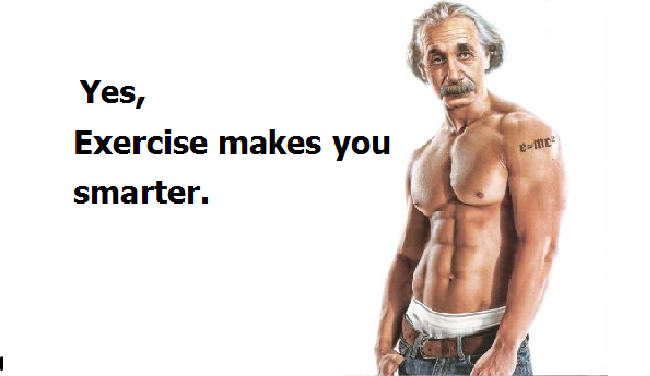
Recent studies on mice, primates and humans alike has revealed that a specific protein known as cathepsin, released when someone performs physical exercise, is the same protein the body uses to generate new cells and connections in parts of the brain critical to memory.
The research is conducted by Henriette van Praag and was published in Cell Metabolism on June 23rd. Doctors and scientists have long believed a link between cognitive function and physical exercise has existed, but no one had found definitive proof. According to van Pragg and her team, this is exactly what they set out to find.
The most important findings from here studies came in the form of a protein called Cathepsin B, which is present in large quantities during the formation of new cells and at the death of old ones. The longer someone performs exercise, the more of this protein the body produces. As cathepsin B is also consumed by your body when it produces new cells, particularly in the brain, increased levels of the proteins help your body to build more brain cells.
In tests ranging from mice, to monkeys to humans, on every species the doctors found that the control group, which did not exercise, consistently had lower cathepsin levels in their bodies and subsequently in their brains. The participants who increased the highest cathepsin levels were found in the people who exercised the hardest.
The second aspect of the study subjected the participants to an intellectual memory test, performed periodically over a course of 4 months. The test asked people to reproduce geometric shapes based on memory. Once again, across all species’, the subjects that had the largest improvements in cognitive memory tests over 4 months, was the group that exercised regularly over the time.
“Those individuals that showed the largest gains in memory also were those that had the largest increase in cathepsin…I don’t think we have fully explained how exercise improves memory but I think we’ve made a significant step forward.” – Dr Emrah Duzel, neurologist at The German Center for Neurodegenerative Diseases
In other brain/memory related news, it turns out all those brain game apps and services are a sham. Over the course of this week, another study came out, claiming that anything gained from brain game/training services is nothing more than a placebo effect.
If you did not know, “brain training” is a billion dollar industry. As pointed out by Beth Mole of ArsTechnica, the industry “promises everything from higher IQs to the ability to stay sharp through aging. The industry even boasts that it can help users overcome mental impairments from health conditions, such as attention deficit hyperactivity disorder (ADHD), traumatic brain injury, and the side effects of chemotherapy.”
Those statements were not regulated by the FDA, and much like the wild wild west supplement industry, the brain training industry has similarly gone unregulated. Earlier this January, Luminocity – one of the leading brain training companies – was ordered by a judge to pay 2 million dollars for deliberately misleading advertising about the benefits of their service.
Six months later, an empirical study published by the National Academy of Science has proven the claims to be outright false. As the author explains “The specter of a placebo may arise in any intervention when the desired outcome is known to the participant – such as with an intervention like cognitive training.” Especially when most “people tend to hold overly favorable views of their abilities in many social and intellectual domains.”
To dumb this down for you, anyone will improve skills repeating a repetitive task. This does not necessarily mean you gain intelligence. When people start to understand the new task, such as a new brain training game, they find it challenging at first, but after playing it long enough, they get used to it. This gives people the sense they have improved, made themselves smarter or more intelligent; when in reality they were just playing a glorified version of Candy Crush all along.
Sources: NPR, Cell Metabolism, National Academy of Science, ArsTechnica
You want to support Anonymous Independent & Investigative News? Please, follow us on Twitter: Follow @AnonymousNewsHQ
This article (Research Ties Cognitive Memory to Physical Exercise) is a free and open source. You have permission to republish this article using a creative commons license with attribution to the author and AnonHQ. Join the conversations at www.anonboards.com




